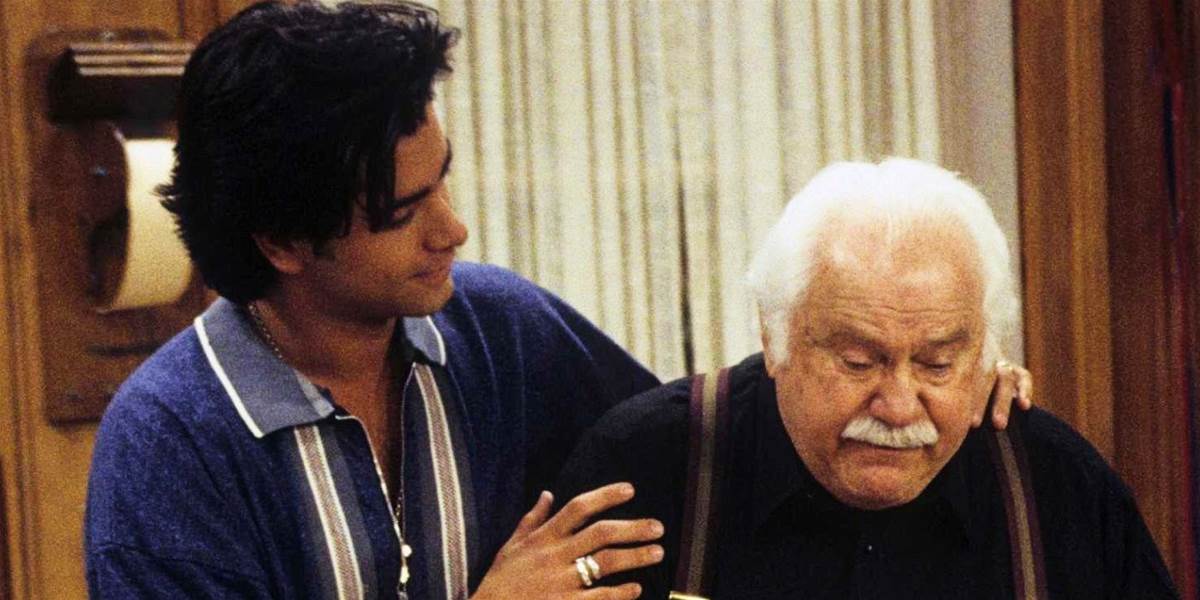
The beloved sitcom Full House, known for its heartwarming and comedic moments, also delved into some surprisingly dark and serious themes throughout its run.
From the very beginning, the show tackled difficult subjects with sensitivity and depth, leaving audiences both shocked and moved. Let's take a closer look at the 10 darkest moments from Full House that will undoubtedly leave you speechless.
The series began with the devastating loss of Pam Tanner, Danny's wife and the mother of their three young daughters. Her untimely death in a car accident caused by a drunk driver set the stage for the show's emotional depth and the Tanner family's journey through grief and healing.

As the eldest Tanner daughter, DJ faced the pressures of adolescence, including body image issues. Her extreme dieting and subsequent fainting episode shed light on the harmful effects of unrealistic beauty standards, a topic rarely addressed in family sitcoms of the time.
Stephanie, the middle Tanner child, found herself grappling with peer pressure when she was coerced into smoking by a group of classmates.
Her internal struggle and eventual refusal to give in portrayed the harsh realities of adolescent social dynamics.

Season 7 brought one of the most poignant moments in the series with the unexpected death of Papouli, Jesse's beloved grandfather from Greece. His sudden passing deeply affected the Tanner family and viewers alike, showcasing the show's willingness to explore themes of grief and loss.
Following a powerful earthquake in San Francisco, Stephanie developed post-traumatic stress disorder (PTSD), shedding light on the psychological impact of natural disasters on children. Full House's portrayal of Stephanie's struggle with PTSD was both poignant and eye-opening.
The aftermath of Pam's death was revisited when Kimmy, DJ's best friend, nearly drove under the influence.
DJ's intervention, coupled with the revelation of her mother's tragic fate, highlighted the far-reaching consequences of reckless behavior.

Stephanie's desire to ride with friends who had been drinking echoed the show's recurring theme of the dangers of impaired driving. Her close call served as a powerful reminder of the risks associated with such behavior, especially in the wake of Pam's death.
In a poignant storyline, DJ formed a special bond with an elderly man named Eddie, only to discover that he was showing early signs of Alzheimer's disease. The show's portrayal of Alzheimer's and its impact on relationships was both touching and thought-provoking.
Stephanie found herself in a distressing situation at a make-out party, highlighting the challenges and pressures faced by young teens.
Her decision to seek help from her family underscored the importance of open communication and trust.

In a particularly harrowing storyline, Stephanie learned that her classmate Charles was being abused by his father. Full House's sensitive handling of domestic violence shed light on a deeply troubling issue, emphasizing the importance of recognizing and addressing such situations.
In conclusion, Full House's willingness to tackle dark and challenging themes alongside its lighthearted moments set it apart as a truly groundbreaking sitcom. The show's ability to address these difficult topics with nuance and empathy left a lasting impact on audiences, solidifying its place in television history.



















